Subaru Forester vs VW Caddy Compact Van - Differences and prices compared
Compare performance (136 HP vs 150 HP), boot space and price (34700 £ vs 25800 £) at a glance. Find out which car is the better choice for you – Subaru Forester or VW Caddy Compact Van?
Costs and Efficiency:
Looking at overall running costs, both models reveal some interesting differences in everyday economy.
VW Caddy Compact Van has a clearly perceptible advantage in terms of price – it starts at 25800 £, while the Subaru Forester costs 34700 £. That’s a price difference of around 8884 £.
Fuel consumption also shows a difference: VW Caddy Compact Van manages with 0.50 L and is therefore clearly more efficient than the Subaru Forester with 8.10 L. The difference is about 7.60 L per 100 km.
Engine and Performance:
Power, torque and acceleration say a lot about how a car feels on the road. This is where you see which model delivers more driving dynamics.
When it comes to engine power, the VW Caddy Compact Van has a barely noticeable edge – offering 150 HP compared to 136 HP. That’s roughly 14 HP more horsepower.
In terms of top speed, the Subaru Forester performs barely noticeable better – reaching 188 km/h, while the VW Caddy Compact Van tops out at 186 km/h. The difference is around 2 km/h.
There’s also a difference in torque: VW Caddy Compact Van pulls clearly stronger with 320 Nm compared to 182 Nm. That’s about 138 Nm difference.
Space and Everyday Use:
Whether family car or daily driver – which one offers more room, flexibility and comfort?
Seats: Subaru Forester offers decisively more seating capacity – 5 vs 2.
In curb weight, VW Caddy Compact Van is to a small extent lighter – 1442 kg compared to 1693 kg. The difference is around 251 kg.
In maximum load capacity, the VW Caddy Compact Van performs decisively better – up to 3700 L, which is about 1969 L more than the Subaru Forester.
When it comes to payload, VW Caddy Compact Van evident takes the win – 759 kg compared to 492 kg. That’s a difference of about 267 kg.
Who comes out on top?
Overall, the VW Caddy Compact Van shows itself to be outperforms in nearly all aspects and secures the title of DriveDuel Champion.
It convinces with the more balanced overall package and proves to be the more versatile choice for everyday use.
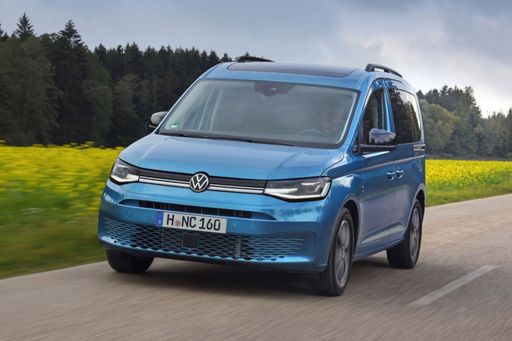
VW Caddy Compact Van
Costs and Consumption
View detailed analysis
Engine and Performance
View detailed analysis
Dimensions and Body
View detailed analysis
Subaru Forester
The Subaru Forester is a practical all-rounder that quietly does everything right, with roomy comfort, excellent visibility and a real fondness for weekend adventures off the beaten path. It won't set your pulse racing like a sports car, but for buyers who prize reliability, safety and sensible charm, it's a brilliantly steady companion with a cheeky streak.
details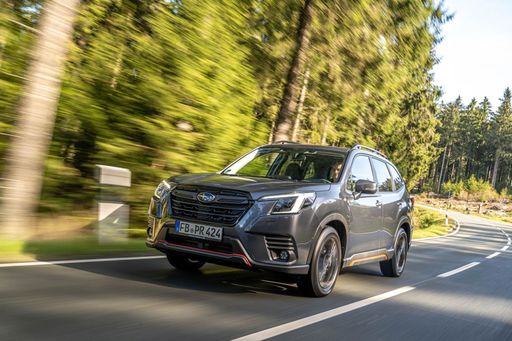
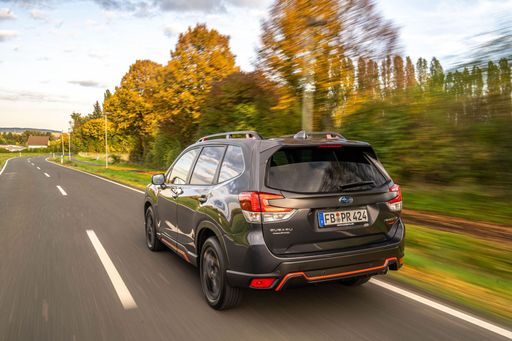
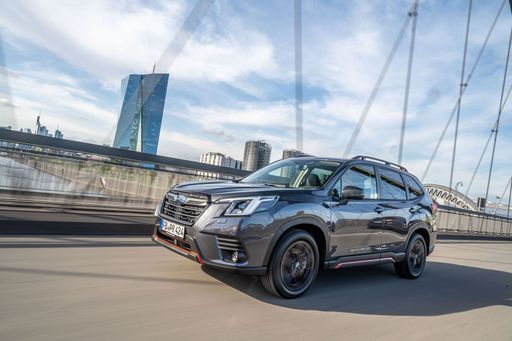
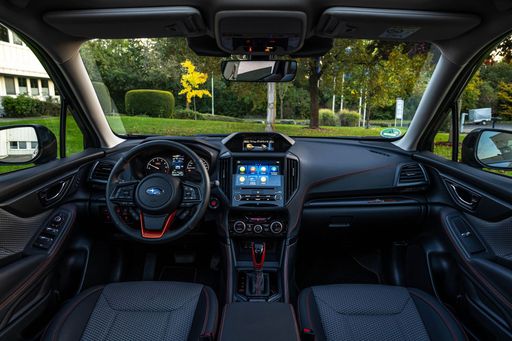
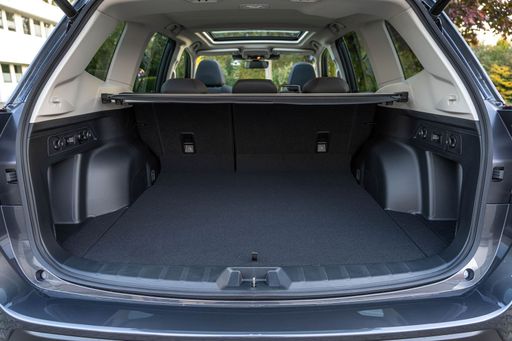
VW Caddy Compact Van
The VW Caddy is a clever compact van that turns urban chores into something almost enjoyable, thanks to smart packaging and a cabin that refuses to feel like punishment. For buyers who want useful practicality without drama, the Caddy is a tidy, dependable choice that quietly gets the job done while remaining surprisingly pleasant to drive.
details
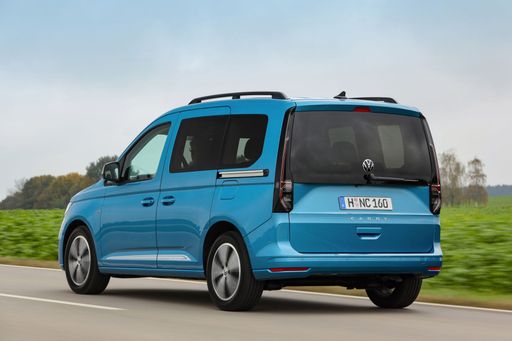
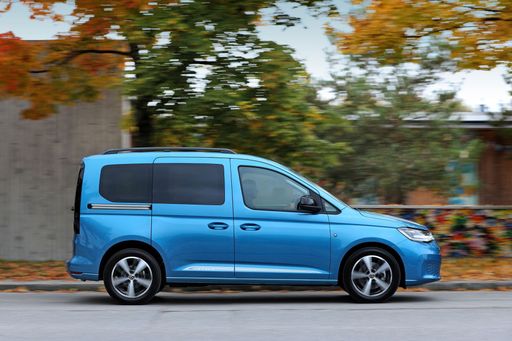
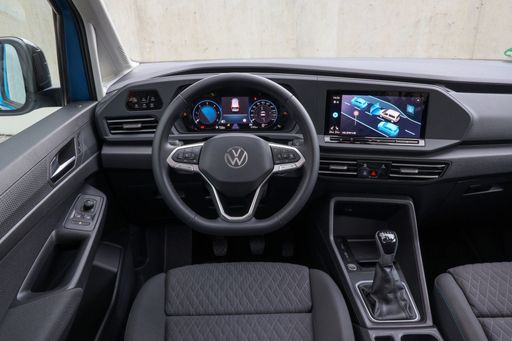

|

|
|
|
|
Costs and Consumption |
|
|---|---|
|
Price
34700 - 42200 £
|
Price
25800 - 42300 £
|
|
Consumption L/100km
8.10 L
|
Consumption L/100km
0.5 - 6.8 L
|
|
Consumption kWh/100km
-
|
Consumption kWh/100km
-
|
|
Electric Range
-
|
Electric Range
117 - 120 km
|
|
Battery Capacity
-
|
Battery Capacity
19.70 kWh
|
|
co2
183 g/km
|
co2
11 - 154 g/km
|
|
Fuel tank capacity
48 L
|
Fuel tank capacity
50 L
|
Dimensions and Body |
|
|---|---|
|
Body Type
SUV
|
Body Type
Cargo Van
|
|
Seats
5
|
Seats
2
|
|
Doors
5
|
Doors
4 - 5
|
|
Curb weight
1693 - 1739 kg
|
Curb weight
1442 - 1818 kg
|
|
Trunk capacity
508 L
|
Trunk capacity
-
|
|
Length
4670 mm
|
Length
4500 - 4853 mm
|
|
Width
1830 mm
|
Width
1855 mm
|
|
Height
1730 mm
|
Height
1819 - 1823 mm
|
|
Max trunk capacity
1679 - 1731 L
|
Max trunk capacity
3100 - 3700 L
|
|
Payload
446 - 492 kg
|
Payload
628 - 759 kg
|
Engine and Performance |
|
|---|---|
|
Engine Type
Petrol MHEV
|
Engine Type
Petrol, Diesel, Plugin Hybrid
|
|
Transmission
Automatic
|
Transmission
Manuel, Automatic
|
|
Transmission Detail
CVT
|
Transmission Detail
Manual Gearbox, Dual-Clutch Automatic
|
|
Drive Type
All-Wheel Drive
|
Drive Type
Front-Wheel Drive, All-Wheel Drive
|
|
Power HP
136 HP
|
Power HP
102 - 150 HP
|
|
Acceleration 0-100km/h
12.20 s
|
Acceleration 0-100km/h
-
|
|
Max Speed
188 km/h
|
Max Speed
175 - 186 km/h
|
|
Torque
182 Nm
|
Torque
220 - 320 Nm
|
|
Number of Cylinders
4
|
Number of Cylinders
4
|
|
Power kW
100 kW
|
Power kW
75 - 110 kW
|
|
Engine capacity
1995 cm3
|
Engine capacity
1498 - 1968 cm3
|
General |
|
|---|---|
|
Model Year
2025
|
Model Year
2024
|
|
CO2 Efficiency Class
G
|
CO2 Efficiency Class
E, B
|
|
Brand
Subaru
|
Brand
VW
|
What drivetrain options does the Subaru Forester have?
The Subaru Forester is available as All-Wheel Drive.
The prices and data displayed are estimates based on German list prices and may vary by country. This information is not legally binding.
